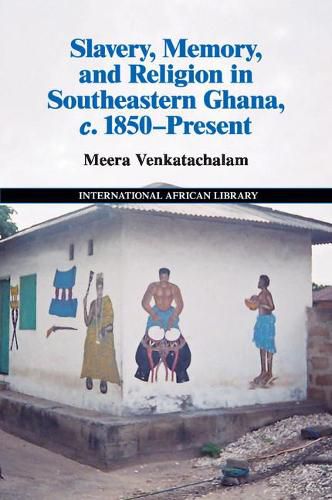Readings Newsletter
Become a Readings Member to make your shopping experience even easier.
Sign in or sign up for free!
You’re not far away from qualifying for FREE standard shipping within Australia
You’ve qualified for FREE standard shipping within Australia
The cart is loading…






Based on a decade of fieldwork in southeastern Ghana and analysis of secondary sources, this book aims to reconstruct the religious history of the Anlo-Ewe peoples from the 1850s. In particular, it focuses on a corpus of rituals collectively known as ‘Fofie’, which derived their legitimacy from engaging with the memory of the slave-holding past. The Anlo developed a sense of discomfort about their agency in slavery in the early twentieth century which they articulated through practices such as ancestor veneration, spirit possession, and by forging links with descendants of peoples they formerly enslaved. Conversion to Christianity, engagement with ‘modernity’, trans-Atlantic conversations with diasporan Africans, and citizenship of the postcolonial state coupled with structural changes within the religious system - which resulted in the decline in Fofie’s popularity - gradually altered the moral emphases of legacies of slavery in the Anlo historical imagination as the twentieth century progressed.
$9.00 standard shipping within Australia
FREE standard shipping within Australia for orders over $100.00
Express & International shipping calculated at checkout
Based on a decade of fieldwork in southeastern Ghana and analysis of secondary sources, this book aims to reconstruct the religious history of the Anlo-Ewe peoples from the 1850s. In particular, it focuses on a corpus of rituals collectively known as ‘Fofie’, which derived their legitimacy from engaging with the memory of the slave-holding past. The Anlo developed a sense of discomfort about their agency in slavery in the early twentieth century which they articulated through practices such as ancestor veneration, spirit possession, and by forging links with descendants of peoples they formerly enslaved. Conversion to Christianity, engagement with ‘modernity’, trans-Atlantic conversations with diasporan Africans, and citizenship of the postcolonial state coupled with structural changes within the religious system - which resulted in the decline in Fofie’s popularity - gradually altered the moral emphases of legacies of slavery in the Anlo historical imagination as the twentieth century progressed.